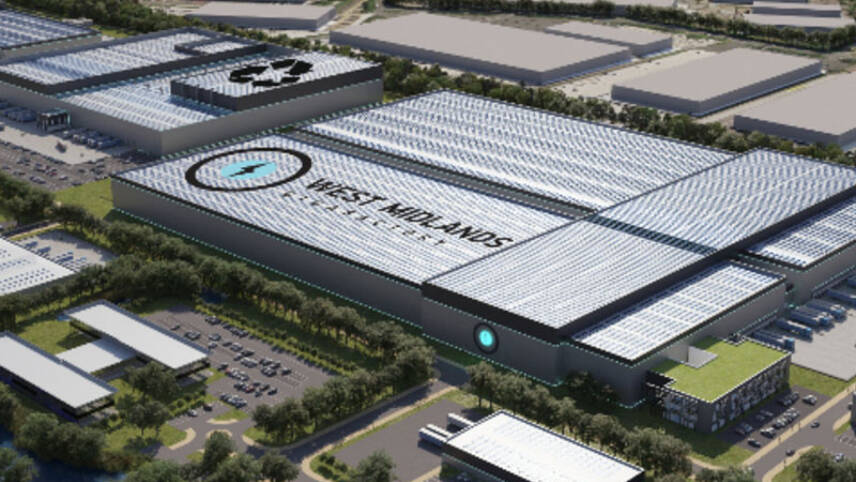Register for free and continue reading
Join our growing army of changemakers and get unlimited access to our premium content

The Chinese firm is contemplating an initial investment of £1.2bn into the project.
EVE Energy, a Chinese company employing approximately 28,000 individuals globally, is reportedly in discussions to support the creation a gigafactory spanning 5.7 million square feet, slated to form a main part of the proposed UK Centre for Electrification, an investment hub located in the West Midlands.
Reports suggest that the Chinese firm is contemplating an initial investment of £1.2bn into the project, as initially disclosed by the Sunday Times.
The gigafactory, being developed in collaboration with local councils and Coventry Airport, is poised to generate up to 6,000 employment opportunities.
Future phases are anticipated to expand the Coventry facility, potentially surpassing the size of Nissan’s £1bn EV factory in Sunderland, featuring a 9 gigawatt-hour (GWh) battery production gigafactory – the first of its kind in the UK.
A spokesperson for the project said: “Based in Coventry, West Midlands Gigafactory is the only available site in the UK that sits within an investment zone and has planning permission for a large-scale battery manufacturing facility.
“We are in discussions with a number of global battery manufacturers, but these remain confidential.”
The key beneficiaries of the facility will likely include Jaguar Land Rover (JLR), Aston Martin Lagonda, BMW, and LEVC, the UK’s sole electric taxi manufacturer.
The Coventry gigafactory plan is anticipated to attract private funding of up to £2bn. However, potential investments are expected to hinge on substantial UK subsidies amounting to hundreds of millions of pounds.
Research found that if the UK is to meet its target of ending new petrol and diesel vehicle sales by 2035, the national Gigafactory stock will need to grow to as much as 50 million square feet of factories and warehouses.
While the automotive industry has welcomed EVE Energy’s interest in investing in the Coventry site, some leaders within the sector have urged the UK Government to prioritise support for the growing local battery startup ecosystem. Here, edie summarises the reaction.
Industry reaction
James Frith, head of European operations at Volta Energy Technologies, said: “It is reassuring to see more investment in the UK’s battery supply chain, this will help Britain to maintain a viable automotive industry in the future and build on the needed battery technologies.
“However, it is notable that it is once again an overseas company, adding to investments by India’s Tata group who own Agratas and China’s Envision group who own AESC. The Government must now support the growing UK battery startup ecosystem, to make sure that while foreign companies are building capacity, it is UK technology that is used in the batteries these facilities will produce.”
Jonathan Carrier, chief executive officer and co-founder of Allye, said: “Coventry has worked tirelessly to build a viable solution at the current airport site. Their efforts should be celebrated. Together with the UK Battery Industrialisation Centre, it cements the area as the heart of the UK’s battery cluster.
“However, the UK Government needs to think long-term how to support the battery value chain with a cohesive plan to build resiliency. The UK is already late to the game. To avoid being a busted flush we need an integrated strategy from precursor materials through to recycling and repurposing.
“We need to do better with our own resources and enable a strong battery ecosystem, not just a gigafactory in isolation.”
Quentin Willson, founder of FairCharge, said: “Britain needs more battery gigafactories and the investment, jobs and economic activity that comes with them.
“Importantly, domestic-built batteries will help ensure the 2027 EU Rules of Origin that mandate a significant proportion of a battery pack to be locally built, don’t result in tariffs that would make our EV exports uncompetitive.
“Our auto industry should welcome a new supply of battery cells that haven’t been shipped across the world but made here in Britain.”


Unless I’ve missed it. It doesn’t appear this factory will recycle end of life EV batteries which seems to be a huge missed opportunity for the positive promotion of A – The EV car nah-sayers and B – The importance of this factory